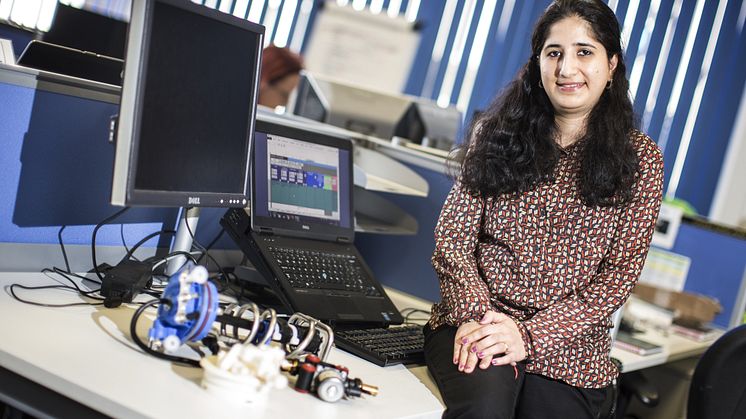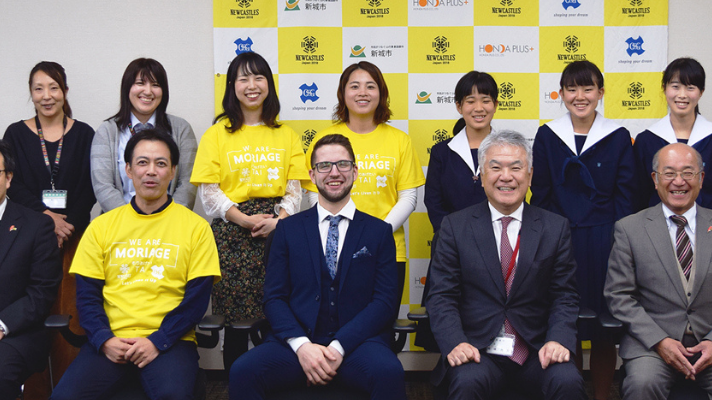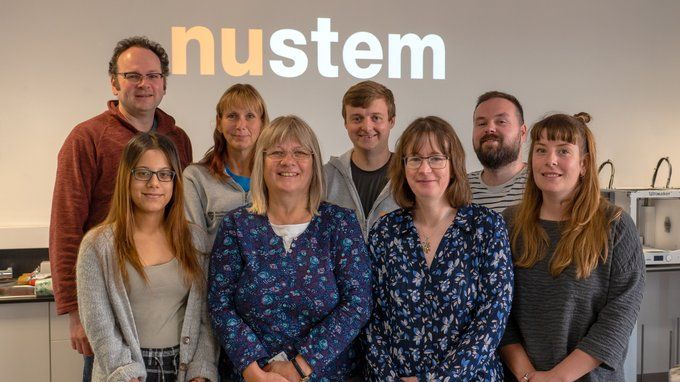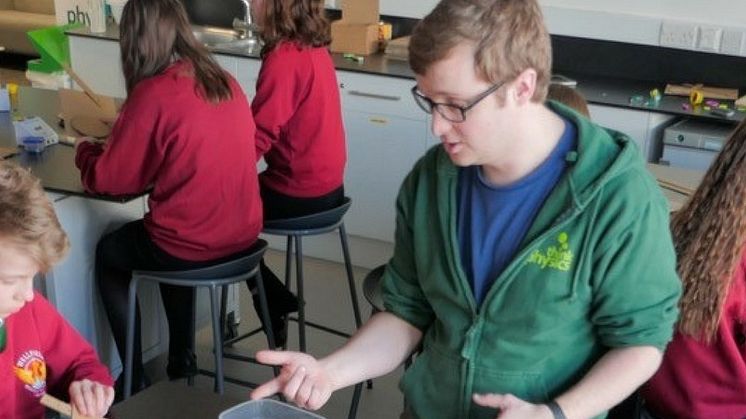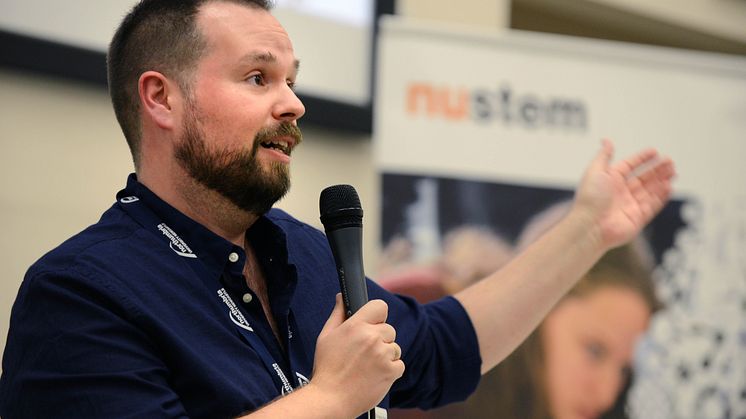
Press release -
Supporting a diverse future for engineering
Northumbria University’s NUSTEM initiative is supporting global engineering companies, including Airbus, BP and Nissan, to develop the engineering workforce of the future by engaging more effectively with young people from diverse backgrounds.
Established in 2014, NUSTEM has worked with more than 115,000 young people, along with their families and teachers, encouraging them to consider careers in Science, Technology, Engineering or Maths (STEM).
With significant expertise in this field, NUSTEM has worked with Engineering UK to support the launch of its Tomorrow’s Engineers Code, which aims to increase the diversity and number of young people entering engineering careers.
Organisations signing up to The Code agree to four pledges about their approach to funding, designing, delivering, and learning from engineering-inspiration activities.
To support signatories in implementing each of the pledges, NUSTEM has developed an evidence-based, practical guide, including short, medium and long-term suggestions and activities, applicable to engineering companies of all sizes.
Dr Carol Davenport is Director of NUSTEM and sits on the advisory board of the Tomorrow’s Engineers Code. Speaking about the project she said: “It is recognised right across the engineering sector that we all need to do more to encourage young people to consider a career in STEM, and to encourage greater workforce diversity. The Code promotes collaboration between engineering organisations to achieve this shared goal.
“The role of NUSTEM has been to take our seven years of experience in public engagement in this field and distil that down to develop a practical guide that companies can use to help them make changes to their business which will have a lasting impact.
“It is recognised that the issue of diversity in engineering can’t be solved by one organisation alone, but thanks to Engineering UK, the Tomorrow’s Engineers Code means we are now all working together, sharing ideas, with clear vision of how to achieve our aim.”
Launched last October, the Tomorrow’s Engineers Code already has support from over 120 organisations, including engineering companies such as Toyota and Siemens, as well as universities, and institutions such as the Royal Academy of Engineering, Ministry of Defence, Institute of Mechanical Engineers and Institute of Physics.
The four pledges within the Tomorrow’s Engineers Code are:
- Ensuring public engagement and learning programmes contribute to a sustained and rich STEM journey for all young people.
- Ensuring all young people have opportunities to engage in engineering-inspiration activities, so that no one is left behind.
- Promoting a positive, compelling and authentic view of engineering, and showcasing the breadth of opportunities.
- Improving the monitoring and evaluation of programmes and activities to develop a shared understanding of what works.
For each of the four, NUSTEM has provided examples of work which could be carried out to achieve the pledge, as well as real-life examples from NUSTEM’s work with young people in the North East of England.
The recommendations include a strong focus on working with children from young age, engaging with their families and teachers, and ensuring activities are accessible to families without a science background.
As Dr Davenport explains: “One way to increase the diversity of an organisation is to encourage young people from traditionally under-represented areas. However, research shows that children make gendered and career limiting choices before the age of eight. If engagement work is to eventually increase the number of people entering STEM employment, we must therefore work with, and understand the needs of, younger children.
“Children are heavily influenced in their career choices by those around them – their families, communities and teachers. Not only is it important to include these influencers in STEM engagement activities, but it’s also more effective.
“Increasing the diversity and number of young people who want to work in STEM is a very complex problem comprising multiple societal and economic challenges. Employers must collaborate to forge a sector which is truly welcoming to people from diverse backgrounds. Doing so will require that, together, we improve the quality, focus and effectiveness of our STEM engagement activities.”
Find out more about the Tomorrow’s Engineers Code.
Find out more about the work of NUSTEM.
Topics
Categories
Northumbria is a research-rich, business-focused, professional university with a global reputation for academic excellence. Find out more about us at www.northumbria.ac.uk --- Please contact our Media and Communications team at media.communications@northumbria.ac.uk with any media enquiries or interview requests ---









